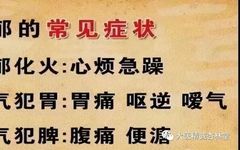
Dr. Wu Bo (字礼文) – Former Deputy Director of Wuning County Traditional Chinese Medicine Hospital, currently a distinguished expert at the Fourth Affiliated Hospital of Nanchang University. Graduated from Hubei University of Technology (Medical School) and born into a family of traditional Chinese medicine practitioners. His grandfather, Professor Wu Dexing, received a special allowance from the State Council and was one of the first nationally recognized veteran TCM practitioners in New China. Dr. Wu has learned medicine from his grandfather since childhood, inheriting his true teachings.
Dr. Wu specializes in treating insomnia, epilepsy, cervical spondylosis, lumbar disc herniation, viral hepatitis, ascites due to liver cirrhosis, fatty liver, hyperlipidemia, cardiovascular diseases, kidney diseases, atrophic gastritis, kidney stones, osteoporosis, rheumatoid arthritis, osteoarthritis, geriatric diseases, gynecological diseases, uterine fibroids, ovarian cysts, menstrual disorders, infertility, tumors, skin diseases, and other complex conditions.
Over the years of practice, he has accumulated a wealth of treatment experience and can flexibly apply various therapeutic techniques to ensure satisfactory recovery for patients.
What is Liver Qi Stagnation?
Some friends often sigh, feeling a sense of blockage in their chest, and their emotions are not very high. Could it be that they are experiencing liver qi stagnation? Indeed, it is quite possible! Unlike the heat symptoms of liver fire, liver qi stagnation is characterized by qi stagnation, emotional changes, and is also known as liver qi depression syndrome. This condition arises from the liver’s failure to regulate and disperse qi, leading to stagnation of qi and manifesting as symptoms. Typical manifestations include depression, frequent sighing, fullness in the chest and flanks or lower abdomen, accompanied by wandering pain. Female patients may experience breast lumps, breast tenderness, menstrual irregularities, and dysmenorrhea. Modern medical diagnoses often identify liver qi stagnation symptoms in conditions such as chronic hepatitis, depression, menopausal syndrome, and breast hyperplasia.
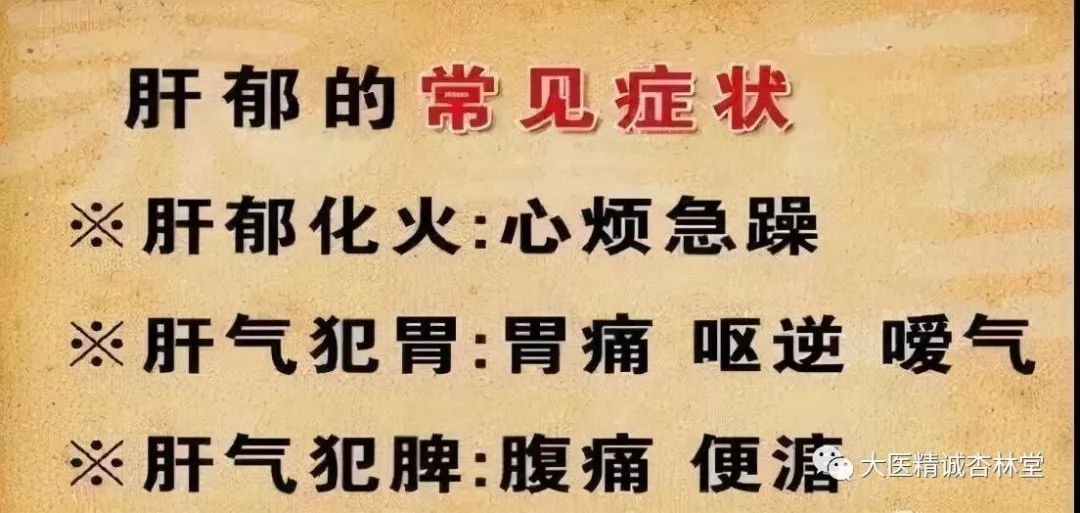
Why Does Liver Qi Stagnation Occur?
This is often related to emotional factors and pathogenic invasions. Emotional factors can include anger, depression, unfulfilled desires, or sudden psychological stress, leading to poor liver qi circulation, stagnation of qi and blood, and subsequent impairment of liver function, resulting in symptoms. Pathogenic factors may include blood stasis and phlegm, which obstruct the liver meridian, causing qi stagnation; or damage to the spleen and stomach, leading to poor qi circulation in the middle jiao, which also affects liver qi.

How to Diagnose Liver Qi Stagnation
In TCM, it is said that all diseases arise from qi. Therefore, only by resolving the issue of liver qi stagnation can women reduce the incidence of illness or even avoid it altogether.
Causes of liver qi stagnation include:
1. Family disharmony: Frequent arguments between spouses or tense relationships with in-laws can lead to liver qi discomfort.
2. Social pressure: For example, older unmarried women often face pressure from parents, relatives, and colleagues regarding marriage, compounded by societal negativity towards their situation, leading to significant stress and liver qi discomfort.
3. Work pressure: In modern workplaces, there is no gender preference, and women face unprecedented stress, especially white-collar workers who are pulled between family and career, leading to widespread liver qi discomfort.
4. Poor self-regulation: Many women struggle to cope with issues, tend to dwell on negative aspects of life and work, and lack the ability to self-soothe, which often results in liver qi stagnation.

Manifestations of Liver Qi Stagnation:
One manifestation is qi stagnation, where qi is blocked within the body, leading to feelings of depression and oppression, commonly described as feeling “stifled” or “suffocated.” Prolonged liver qi stagnation can generate heat, transforming into excessive liver fire, resulting in irritability and anger. Some individuals may sigh frequently and feel unhappy, while others may become impulsive and easily lose their temper, causing distress to themselves and others.
Many women report that they are aware of their poor health and wish to take blood-nourishing supplements, but they often experience mouth ulcers or have trouble sleeping after taking them. Some believe this is due to “deficiency not accepting nourishment,” but these issues are often caused by liver fire. If liver fire is obstructing the pathway, how can nourishment be absorbed?
The dangers of liver qi stagnation are significant and beyond imagination; it can lead to blood stasis, weakened temper, dampness accumulation, and even yin deficiency with yang excess. In summary, the consequences of liver qi stagnation are numerous.
Today, many people suffer from liver qi stagnation, especially women who juggle family responsibilities and careers, raising and educating children while also caring for elderly parents, making it difficult to avoid liver qi stagnation.

How to Determine if You Have Liver Qi Stagnation
Self-diagnosis is important and should not be taken lightly. The most critical evidence of liver qi stagnation can be found on the tongue. Generally, a normal tongue is oval-shaped, while a person with liver qi stagnation has a pointed tongue, often with a red tip and edges—this is a key clue for diagnosing liver qi stagnation.
To confirm liver qi stagnation, you will need the following “evidence”:
(1) Bitter taste: Many women notice a bitter taste in their mouth, especially in the morning.
(2) Dry throat: Feeling dryness in the mouth and throat, as if there is no saliva, although some may still have saliva visible on the tongue.
(3) Sensation of obstruction in the throat: A feeling as if there is a seed stuck in the throat, which cannot be coughed out or swallowed, known as “plum pit qi.”
(4) Dizziness: Some women frequently experience dizziness, either all day or in sudden episodes, and some may also have headaches.
(5) Poor appetite: “Liver wood counteracts spleen earth,” so liver qi stagnation can lead to various spleen and stomach issues, such as lack of appetite, bloating, and stomach pain.
(6) Alternating cold and heat sensations: Feeling hot when dressed and cold when undressed, or feeling hot in a warm room and cold when going outside.
(7) Irritability: Individuals with liver qi stagnation often feel irritable and easily angered.
(8) Nausea: Due to the influence of “liver wood counteracting spleen earth,” leading to upward qi reversal, causing feelings of gas rising in the stomach, belching, acid reflux, or even vomiting.
(9) Chest tightness: Feeling tightness in the chest, even diagnosed with heart issues. However, individuals with heart problems should first address liver qi stagnation if their tongue is pointed, as this can help resolve heart issues.
(10) Rib pain: A persistent feeling of pain in the ribs.
(11) Insomnia with vivid dreams: Insomnia can primarily stem from blood deficiency or liver qi stagnation. Frequent dreaming is also a sign of liver qi stagnation, as such individuals often dream upon falling asleep.
(12) Low mood: Sighing, feeling melancholic, and being overly sensitive.
(13) Cold hands and feet: Many know that cold extremities can result from yang deficiency, blood deficiency, or blood stasis, but few recognize that liver qi stagnation can also cause cold hands and feet. If cold extremities are accompanied by the above symptoms, consider the possibility of liver qi stagnation.

These are the criteria for diagnosing liver qi stagnation. If at least one or two symptoms match, and the tongue is pointed, it can generally be concluded that liver qi stagnation is present. In fact, even without considering these symptoms, women can often sense their own emotional state, whether they have encountered distressing events, felt anger, or experienced significant work pressure. These are things that individuals are most aware of, so the true diagnostic standard for liver qi stagnation lies within oneself.
The liver governs the regulation of qi. If the liver’s function is normal, qi flows smoothly, blood is harmonious, and one’s mood will be joyful and bright; conversely, if the liver’s function is impaired, qi stagnation occurs, leading to anxiety, depression, irritability, and other negative emotions.
As the liver meridian primarily runs along the sides of the body, regularly scraping this area can help relieve liver qi stagnation. The focus should be on the intersection of the nipple line and the sixth intercostal space, known as the Qimen (期门) point. When scraping, the movements should be slow, targeting painful or nodular areas.

II. Massage Techniques for Relieving Liver Qi Stagnation
The principle of massage: TCM believes that when the liver fails to regulate, it is prone to qi stagnation and qi fire disturbance. Therefore, when using massage therapy to nourish and protect the liver, the focus should be on soothing the liver, regulating qi, clearing liver fire, promoting liver blood circulation, and maintaining smooth qi flow throughout the body. The liver meridian reflects and regulates liver function, so traditional TCM massage primarily involves pressing and kneading key acupoints along the liver meridian to nourish the liver. Additionally, as the liver and kidneys are interconnected, massaging related acupoints on the kidney meridian can also help relieve liver qi stagnation and regulate liver function.
Hand Massage
Using the thumb to massage the liver reflex area for 3-5 minutes until a feeling of soreness and swelling is achieved. Massaging this reflex area helps relieve liver qi stagnation and regulate liver function, enhancing the liver’s blood storage capacity and alleviating irritability.
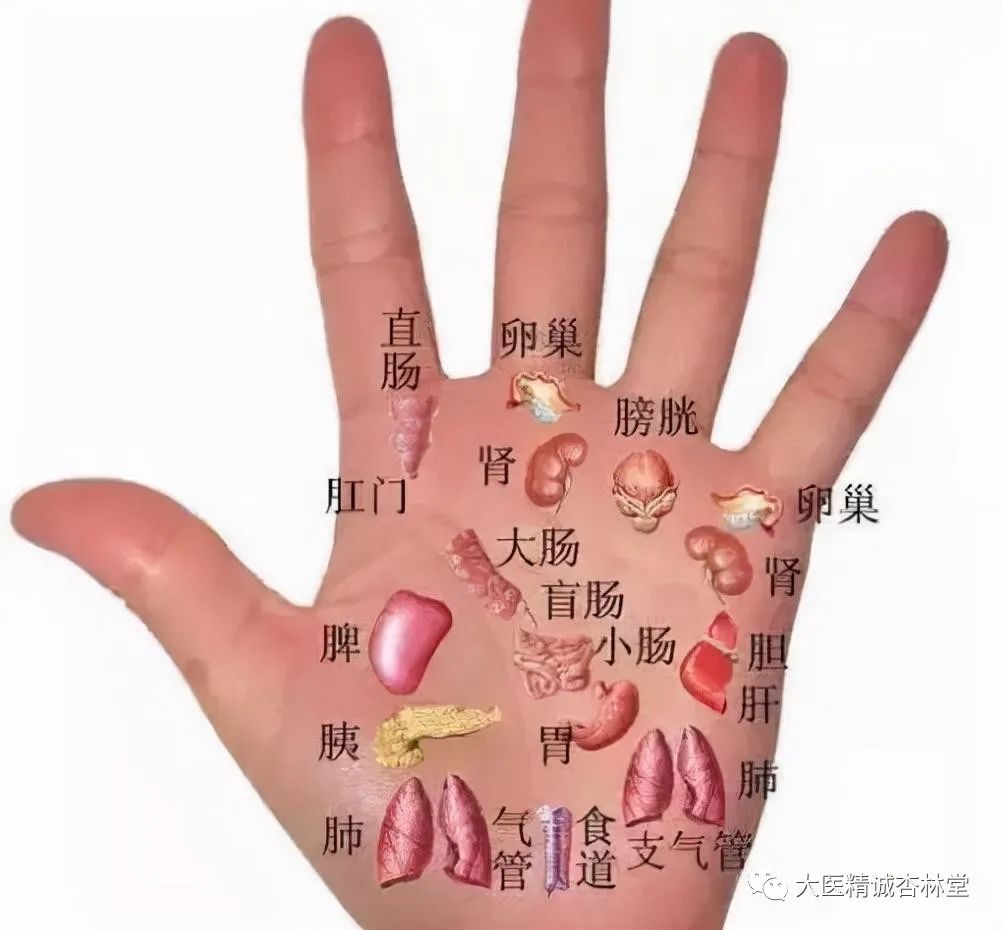
Foot Massage
Using the thumb to massage the Tai Xi (太溪) point for 3-5 minutes until a feeling of soreness and swelling is achieved. The Tai Xi point, belonging to the kidney meridian, also has the effect of nourishing water and supporting wood, benefiting the kidneys and calming the liver. Regularly massaging this point is crucial for regulating liver function.
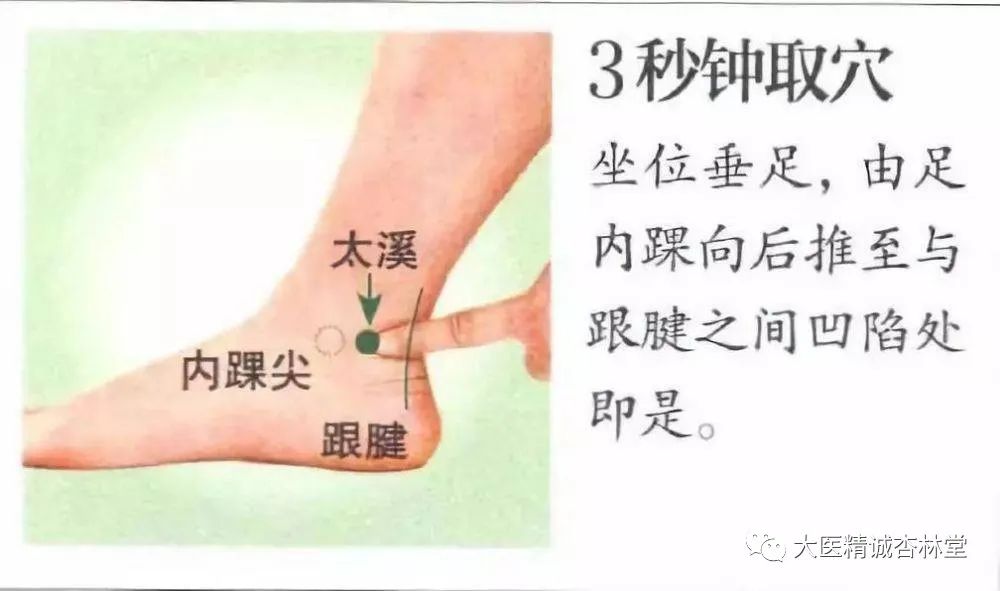
Using the thumb to massage the Tai Chong (太冲) point for 3-5 minutes until a feeling of swelling and pain is achieved. Whether it is liver fire, liver yang, liver qi, or liver wind, this point can help drain them. Massaging this point has the effects of calming the liver, extinguishing wind, relaxing muscles, and regulating liver qi.
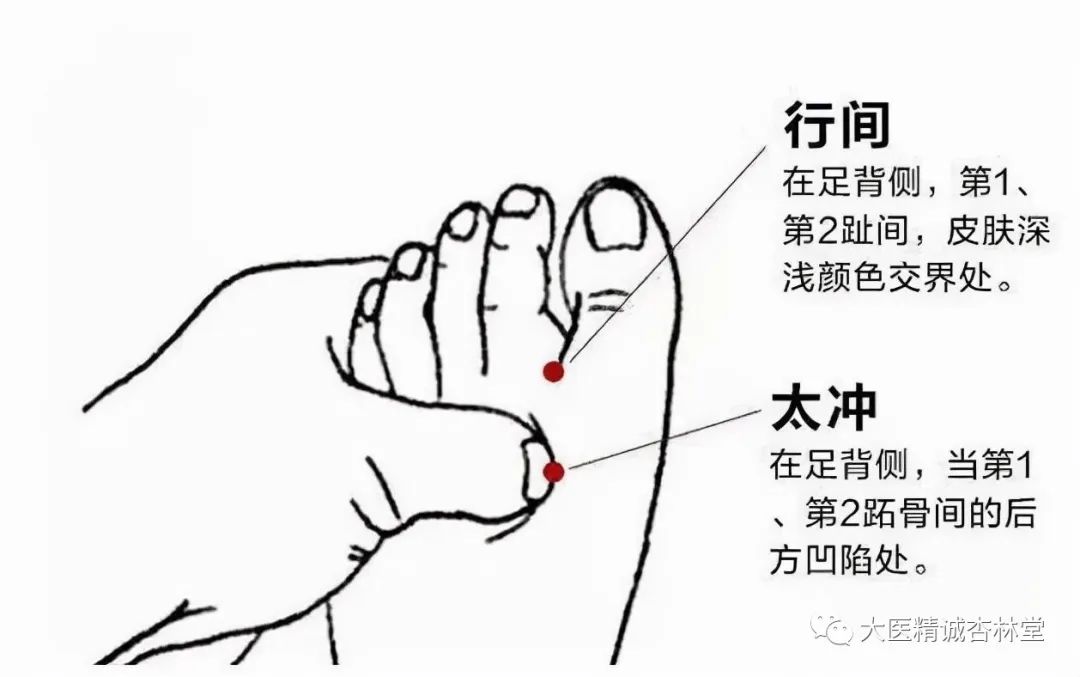
Using fingers to pinch the Da Dun (大敦) point for 2-3 minutes until a feeling of pain is achieved. The Da Dun point has powerful therapeutic effects. Massaging this point can tonify qi, stabilize the body, and significantly benefit liver health.
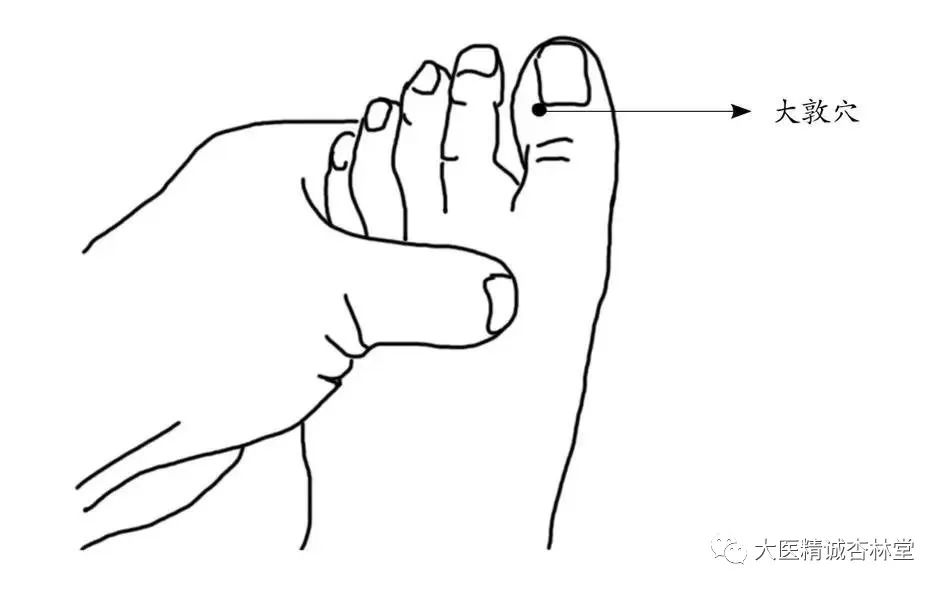
Using the thumb to massage the liver and gallbladder reflex areas on the feet for 1-3 minutes each, three times a day. This method can enhance liver function, treat liver and gallbladder disorders, and also help with anxiety, insomnia, and depression.
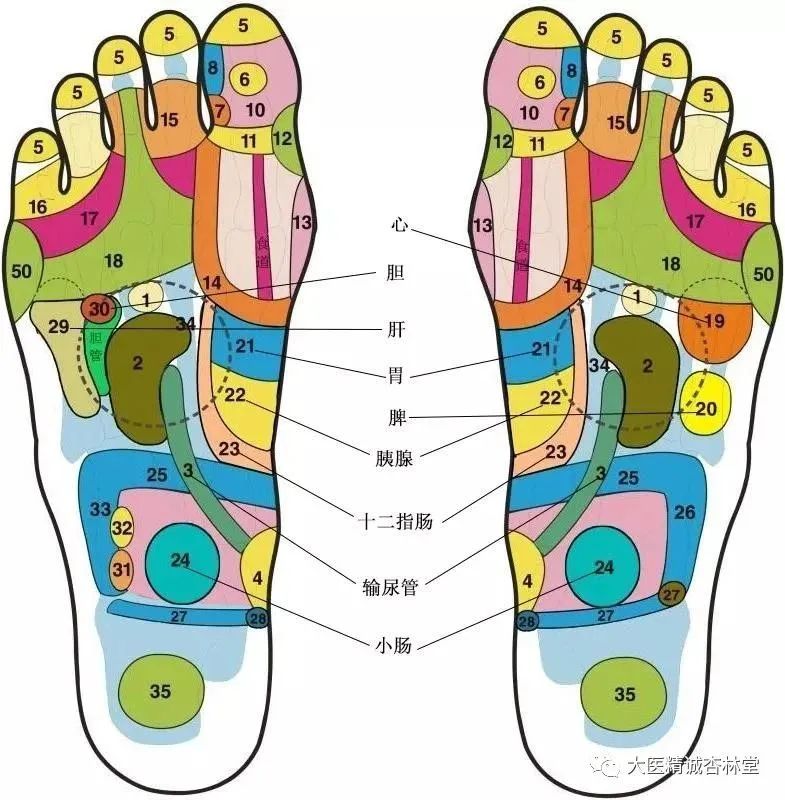
Using both thumbs to massage the abdominal nerve plexus reflex area on the feet for 1-3 minutes, three times a day. This method has a regulatory effect on the nervous system and can treat conditions such as menopausal syndrome caused by liver qi stagnation.
Using the thumb to press the kidney, ureter, and bladder reflex areas on the feet for 1-3 minutes each. This method can enhance urinary system function, accelerate the filtration, secretion, and excretion of metabolic waste, and promote liver drainage function.
Ear Massage
Using the index finger to massage the Shen Men (神门), heart, and cortical reflex areas on the ear for 1-3 minutes each. Regularly massaging these reflex areas can have a calming effect and effectively alleviate various symptoms caused by liver qi stagnation.
Using the index finger to massage the liver reflex area on the ear for 1-3 minutes until a feeling of soreness and swelling is achieved. This method directly affects the liver, improving blood circulation to the liver and enhancing its drainage function, thus relieving liver qi stagnation.
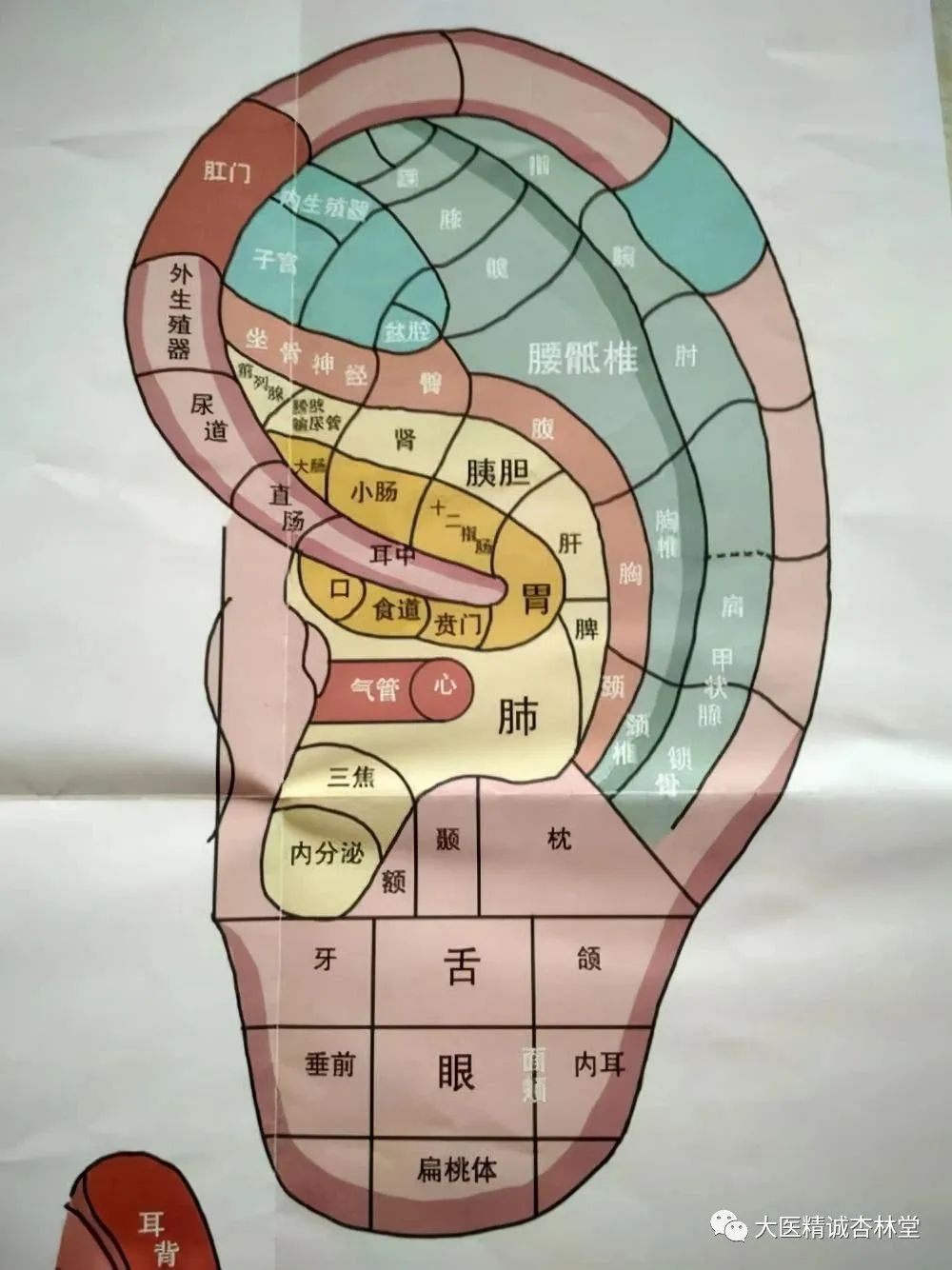
Daily Liver Care
1. Maintain a normal weight: The fat in the liver will decrease along with body fat. It is recommended to engage in moderate-intensity aerobic exercise for about 30 minutes, five times a week, and to maintain a balanced diet based on individual circumstances.
2. Avoid alcohol: Abstaining from alcohol is currently the most effective measure to protect the liver. Studies have found that for patients with alcoholic fatty liver, liver fat can significantly improve within about 10 days of abstinence.
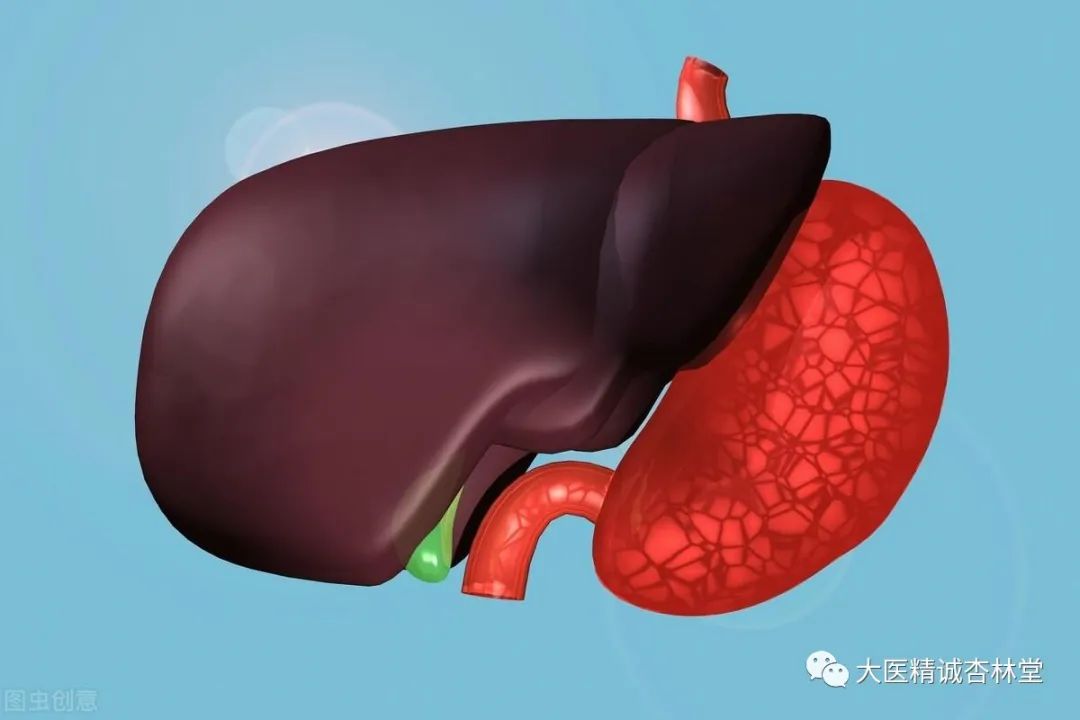
3. Avoid indiscriminate medication: Follow medical advice when taking medication and avoid polypharmacy. For example, many cold medications, including traditional Chinese patent medicines, contain acetaminophen. If two or more cold medications are taken simultaneously, the total intake of acetaminophen can exceed safe limits without one realizing it.

4. Pay attention to sleep: The liver and gallbladder begin their metabolism at 11 PM, and entering sleep at this time allows the liver to repair itself, minimizing adverse effects. Sitting quietly for 10-30 minutes after meals before exercising can ensure normal liver metabolism. Staying up late, excessive gaming, and prolonged mahjong playing are all bad habits that harm the liver. To regulate liver function, it is essential to maintain a regular schedule, going to bed early and rising early.
Dr. Wu
Doctor Wu

Also serves as a distinguished expert at the Fourth Affiliated Hospital of Nanchang University;


18370215919
wb18370215919


